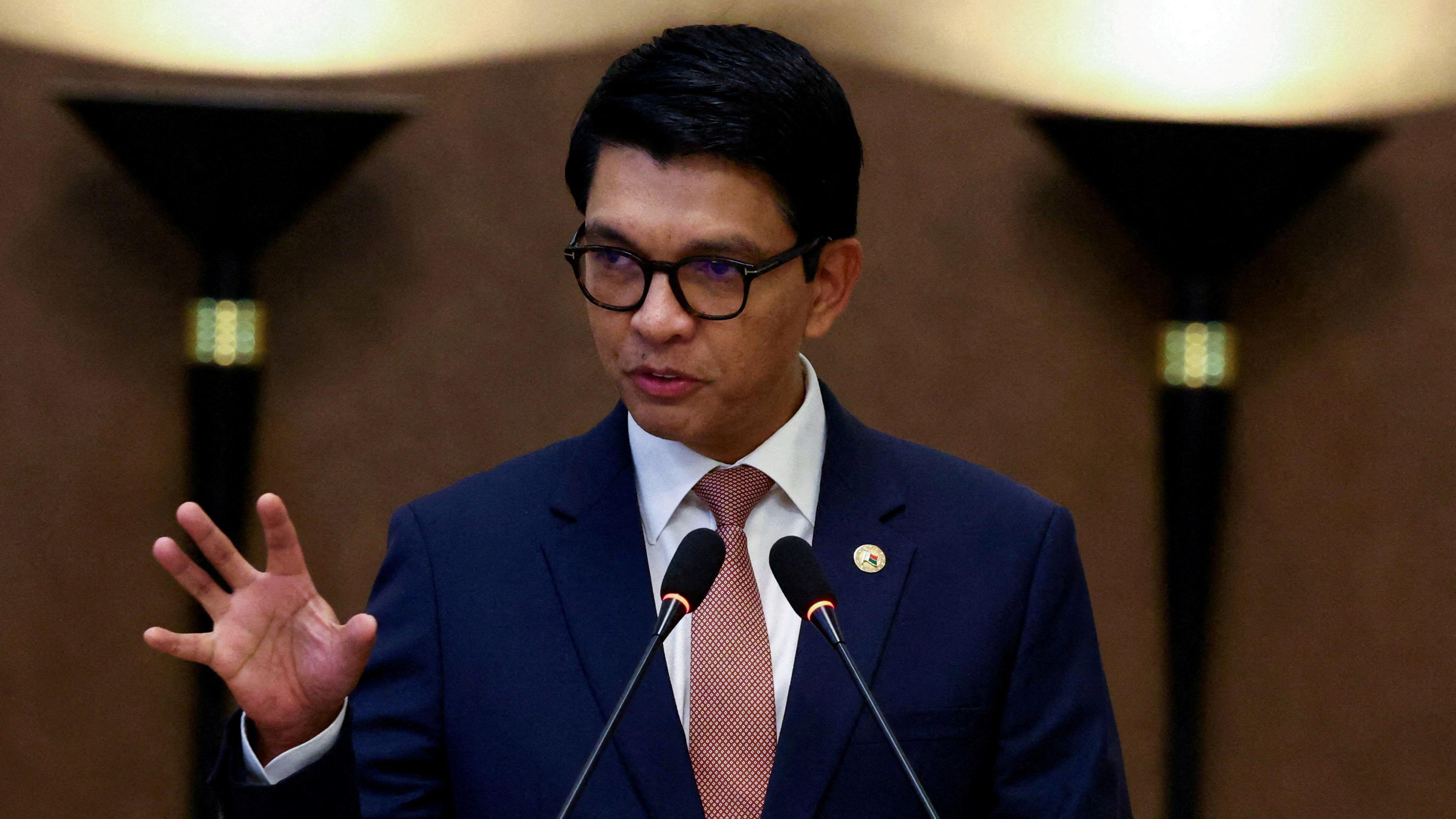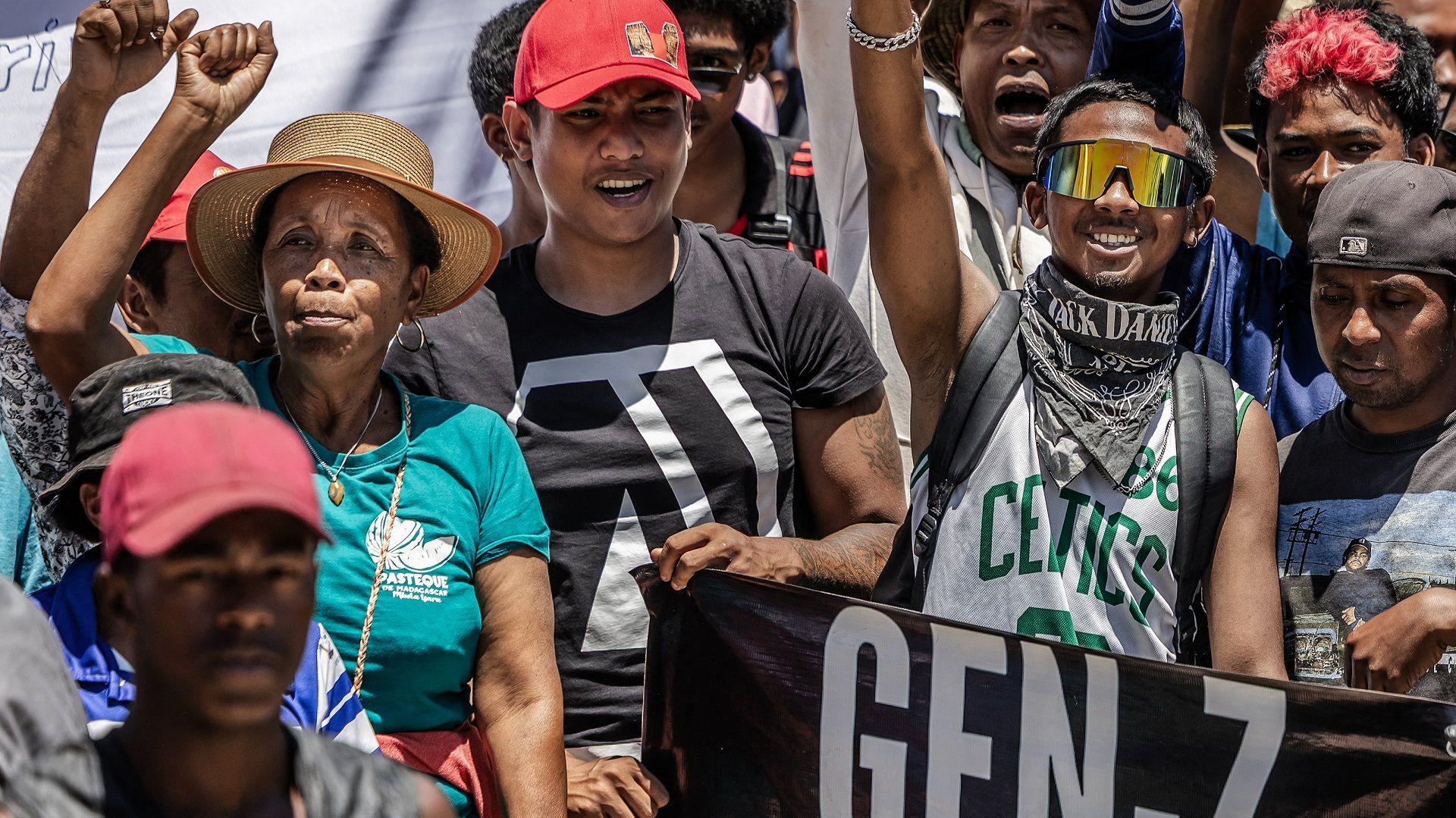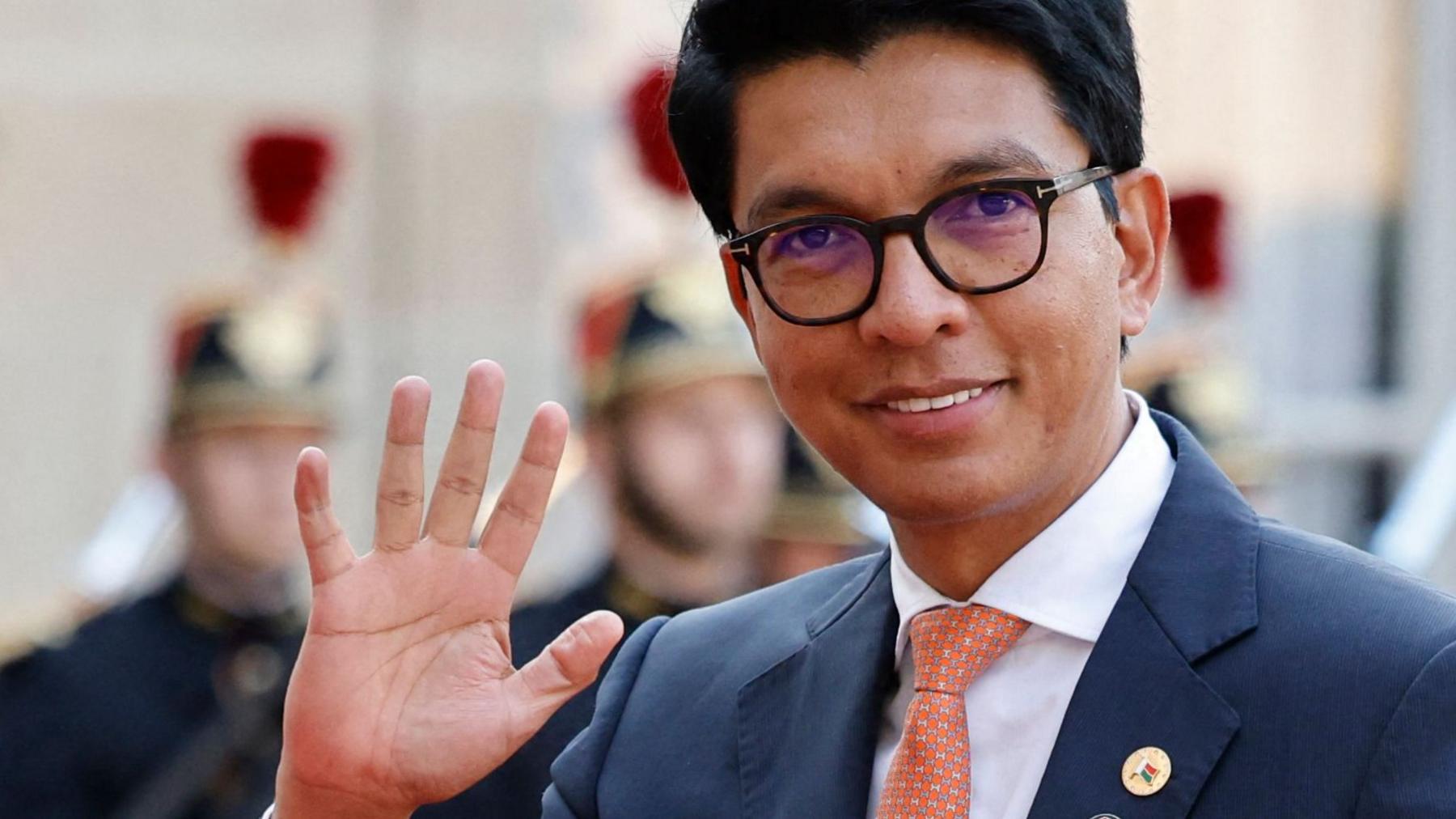Madagascar president hiding in 'safe place' as he warns of coup attempt

Madagascar's President Andry Rajoelina pictured last week - he has not been seen since last Wednesday
- Published
Madagascar's embattled President Andry Rajoelina has said he is sheltering in a "safe place" after an attempt on his life, following weeks of protests calling for him to quit.
In a live broadcast to the nation on Facebook, Rajoelina, 51, said "a group of military personnel and politicians planned to assassinate me".
He did not reveal his location, but unconfirmed reports earlier suggested that he had fled the country on a French military aircraft.
It follows a fortnight of nationwide protests, mainly led by young demonstrators, aimed at kicking him out of power.
Rajoelina's failed attempts to placate the young protesters - dubbed "Gen Z Mada" - saw the president sack his entire government and make other concessions to no avail.
He has not been seen since Wednesday, and at the weekend Rajoelina's office said an attempt was under way to force him from power.
His address to the nation was delayed several times on Monday amid the chaos, as soldiers threatened to seize the state TV headquarters in the Indian Ocean island.
Eventually, in the Facebook broadcast he said: "Since 25 September, there have been attempts on my life and coup attempts. A group of military personnel and politicians planned to assassinate me.
"I was forced to find a safe place to protect my life."
"There is only one way to resolve these issues; that is to respect the constitution in force in the country".

Young people spearheaded nationwide rallies demanding a fairer deal for citizens
Over the weekend, CAPSAT, a powerful army unit that helped install Rajoelina into power in 2009 moved to undermine him by declaring itself in command of all the armed forces, while some of its officers joined protesters on the streets of the capital, Antananarivo.
Following a meeting of military commanders on Monday, the new Chief of Army Staff installed by CAPSAT, Gen Demosthene Pikulas, assured the public that the security forces were working together to maintain order in the island nation.
By Monday evening, the general was at state TV headquarters trying to resolve the crisis, according to a statement from the presidency.
Speaking on condition of anonymity, a senior leader in Madagascar's largest opposition party, TIM, told the BBC that Madagascar was now effectively being run by the army unit.
The TIM party has also said that it plans to bring impeachment proceedings against Rajoelina for "abandonment of post".
France's President Emmanuel Macron refused on Monday to confirm Rajoelina had been evacuated by a French military aircraft. However, he said the "constitutional order" must be preserved in Madagascar.
"We have a youth that has expressed itself, that is politicised, that wants to live better and that is a very good thing," Macron told reporters in Egypt.
"We just need to make sure that it is not taken over by military factions or foreign interference."
The head of the African Union's security council expressed similar concerns, saying the organisation firmly rejected any "unconstitutional change of government".
Several of Rajoelina's inner circle have fled to nearby Mauritius. They include former Prime Minister Christian Ntsay and the businessman Maminiaina Ravatomanga.
Despite its abundant natural resources, Madagascar is one of the poorest countries in the world. About 75% of people there live below the poverty line, the World Bank says, while data from the International Monetary Fund (IMF) shows just over one-third of people have access to electricity.
The protests began over anger with repeated water and power cuts, then escalated to reflect wider dissatisfaction with Rajoelina's government over high unemployment, corruption and the cost-of-living crisis.
At least 22 people were killed and more than 100 injured in the first few days of the protests, according to the UN, although the government has rejected these figures.
Eyewitnesses describe security officers opening fire on protesters with live ammunition. In one case, a newborn baby died from smoke inhalation after being exposed to tear gas.
Madagascar has been rocked by multiple uprisings since it gained independence in 1960, including mass protests in 2009 that forced then-President Marc Ravalomanana to step down and saw Rajoelina ushered into office.

Andry Rajoelina pictured in France in 2023
Aged just 34 at the time, Rajoelina became Africa's youngest leader - going on to govern for four years, then returning to power again after the 2018 election.
Rajoelina was born into wealth and, before entering politics, had made a name for himself as an entrepreneur and DJ - setting up a radio station and an advertising company along the way.
But his sharp-suited, baby-faced appeal soon waned, as allegations of cronyism and entrenched corruption became unshakeable.
More on Madagascar's crisis:

Go to BBCAfrica.com, external for more news from the African continent.
Follow us on Twitter @BBCAfrica, external, on Facebook at BBC Africa, external or on Instagram at bbcafrica, external
Related topics
BBC Africa podcasts
- Attribution